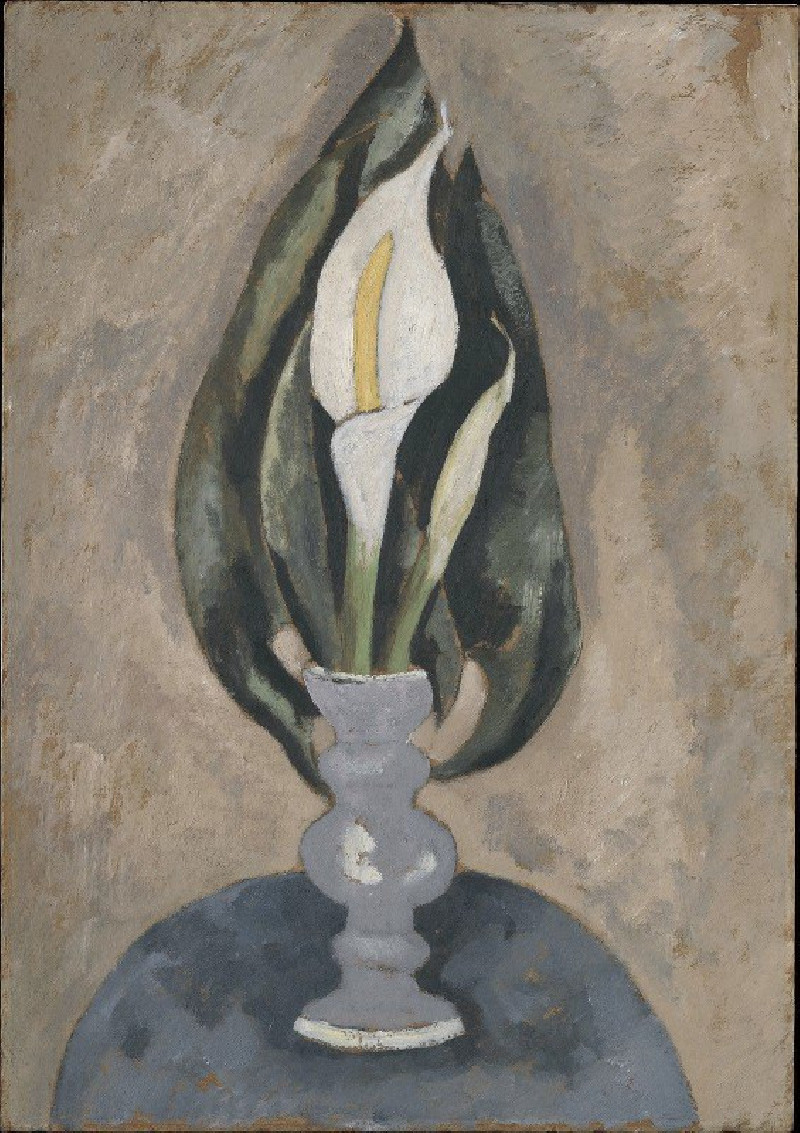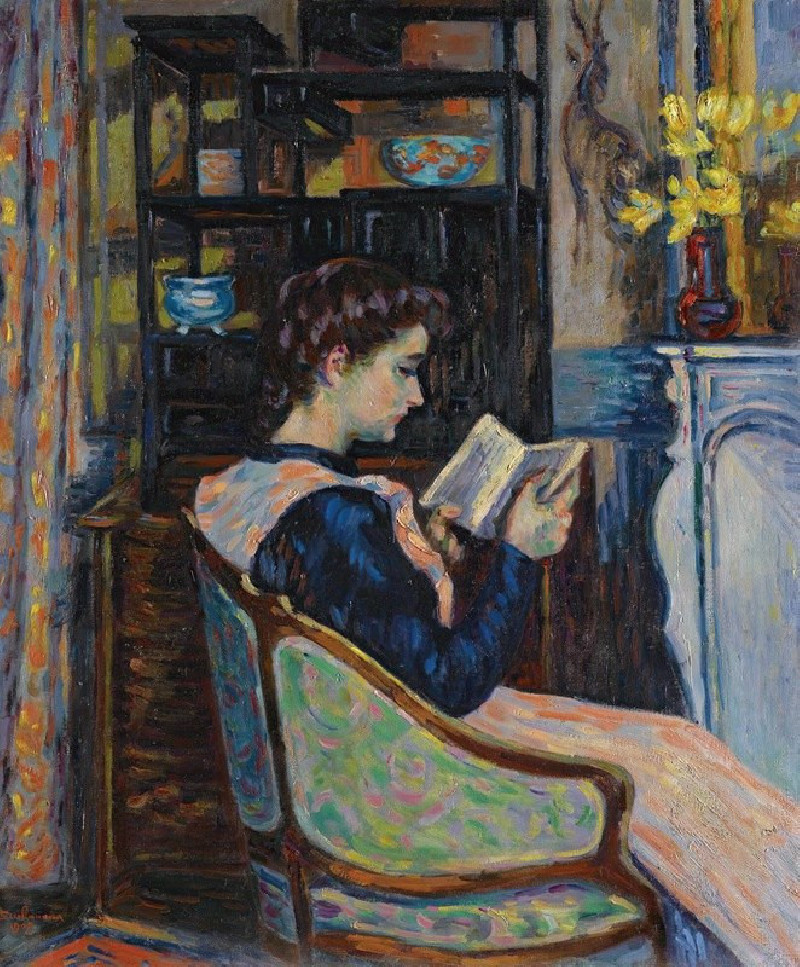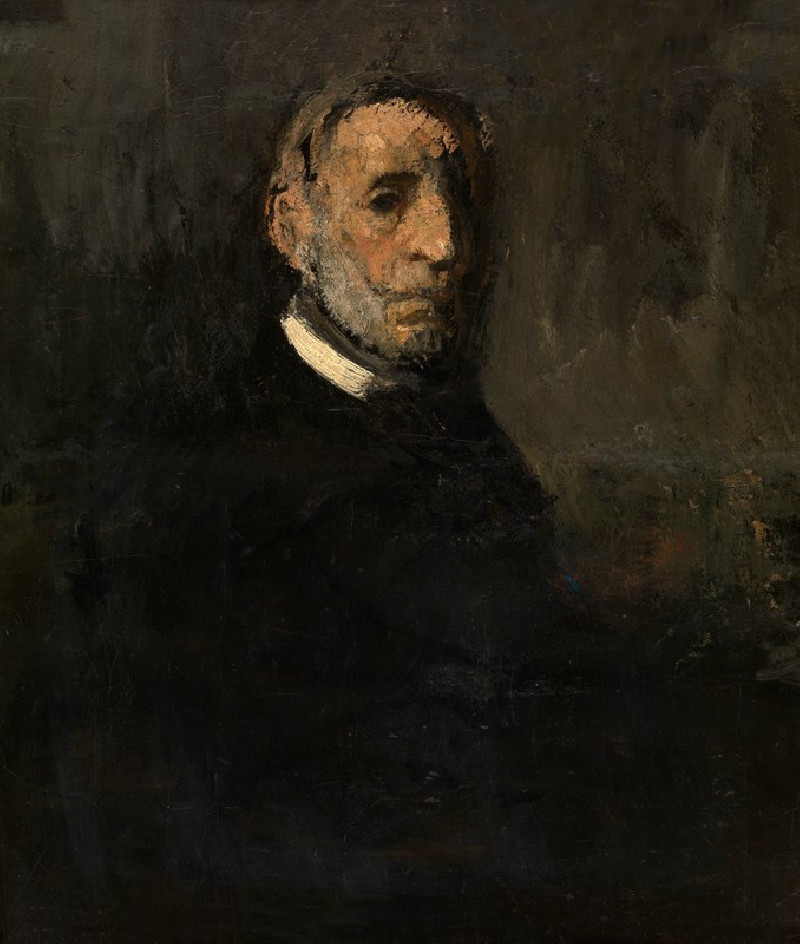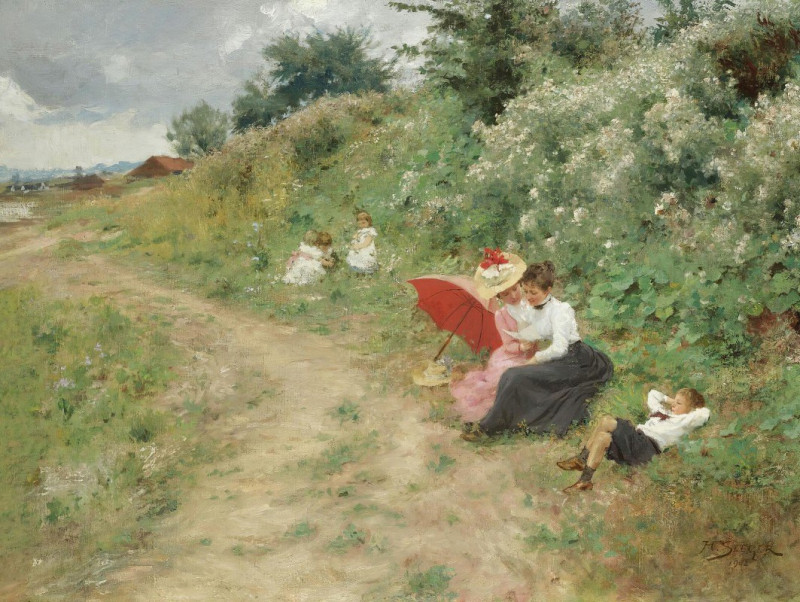Dancers at the ice palace (1912)
Technique: Giclée quality print
Recommended by our customers
More about this artwork
Ernst Ludwig Kirchner's "Dancers at the Ice Palace" (1912) is a striking example of the artist's vibrant and dynamic style, particularly evident in his depiction of movement and festive scenes. This painting captures the lively atmosphere of an ice palace, where elegantly dressed figures swirl and dance on the ice. The foreground is intriguingly occupied by an audience framed in shadow, their faces barely distinguished, focusing intently on the spectacle before them. The dancers, wearing flowing dresses, are rendered in a series of sweeping, angular lines that convey both their grace and the brisk motion of their dance.Using a stark contrast of bold black against a stark white background, with flashes of yellow-green, Kirchner amplifies the vibrancy and energetic pulse of the scene. The composition, characterized by angular, almost jagged forms typical of Kirchner's work, reflects the influence of the German Expressionist movement, which sought to convey emotional experience rather than physical reality.
Delivery
Returns
Ernst Ludwig Kirchner (1880–1938) was one of the most important German Expressionist painters. He was a co-founder of Die Brücke, a group of German expressionist artists formed in Dresden in 1905. Die Brücke and Kirchner took inspiration from Vincent Van Gogh and Edvard Munch, as well as African and Oceanic art. They used woodblock printing as a medium to showcase their signature style: flat, unrealistic images with vivid colors. The recurring themes in Kirchner's artworks included exotic cultures, faraway landscapes, self-portraits, dancers and Berlin street life. His paintings and prints effectively portrayed non-European cultures despite the fact that he never traveled outside of Europe.

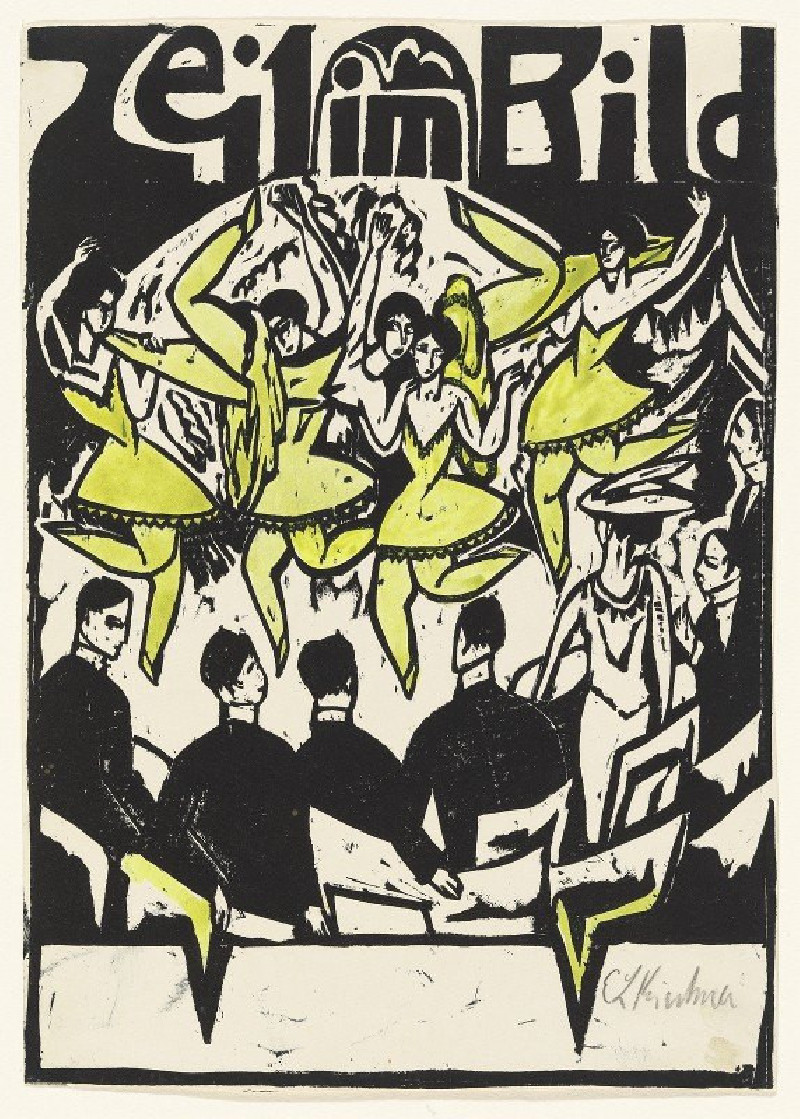
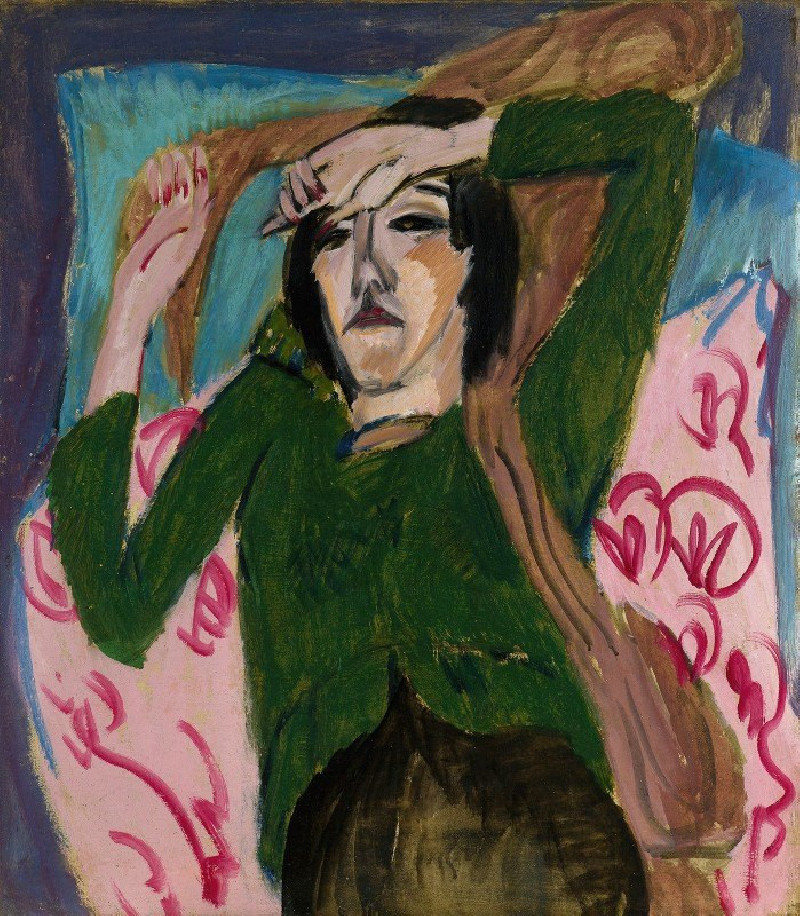
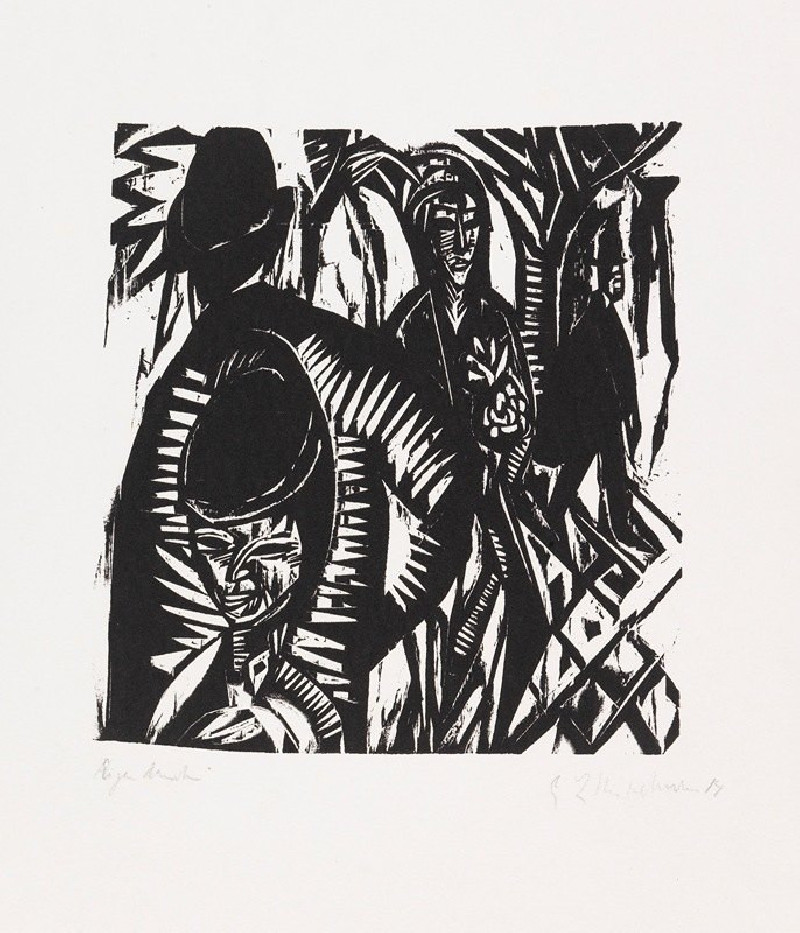
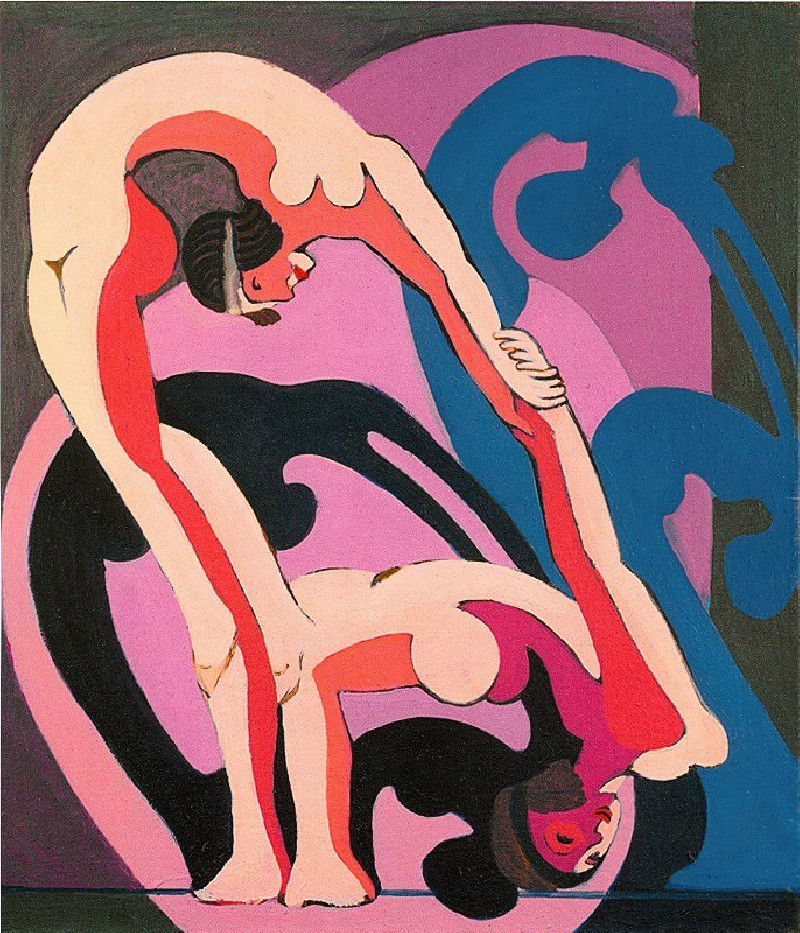

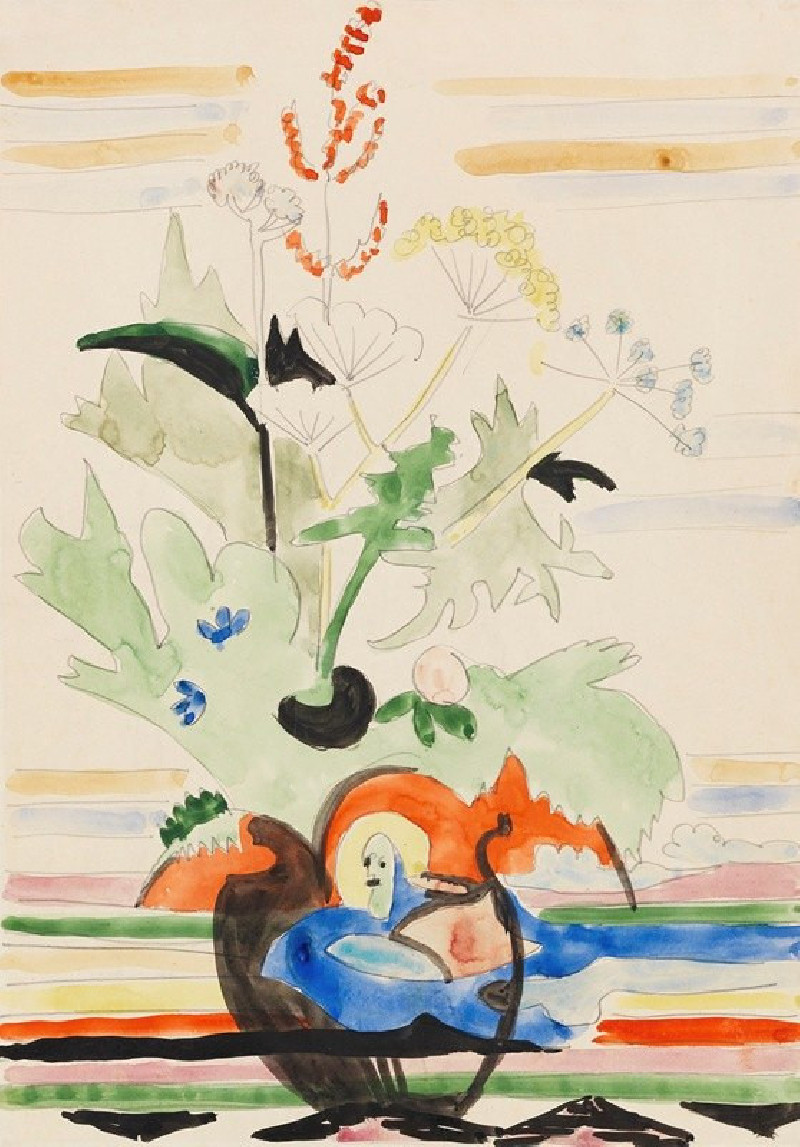
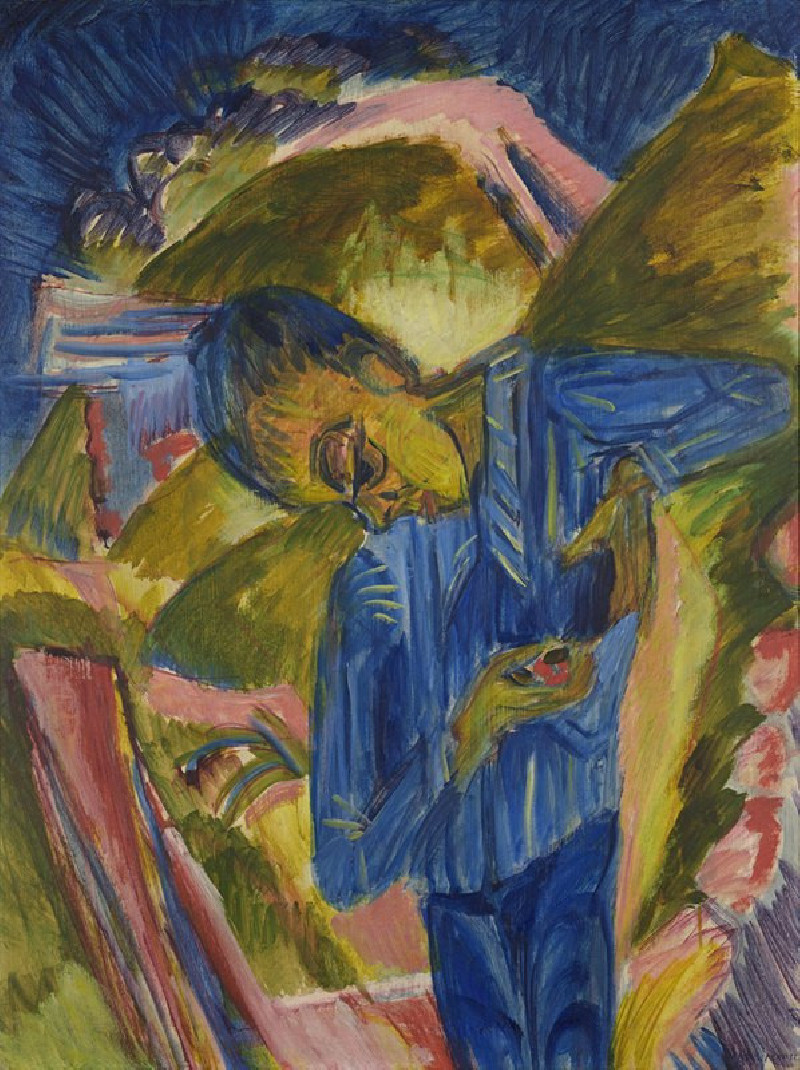
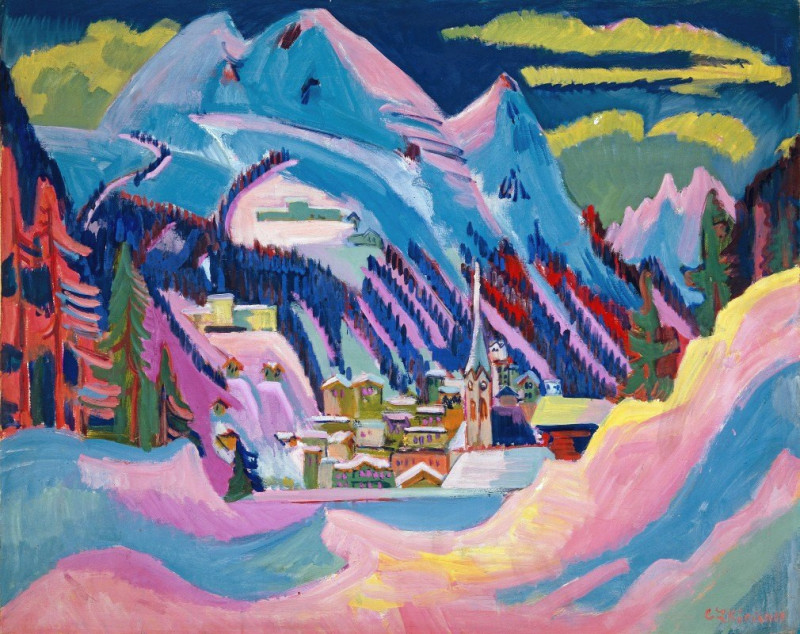

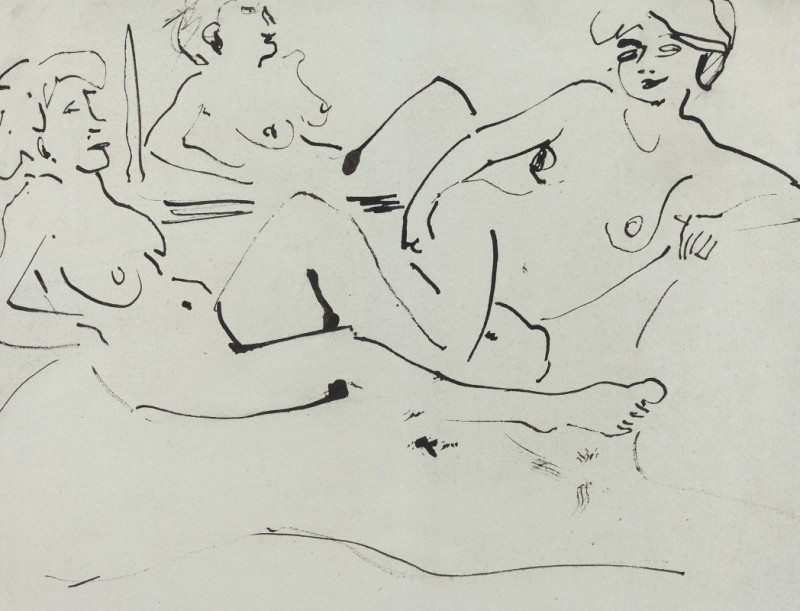
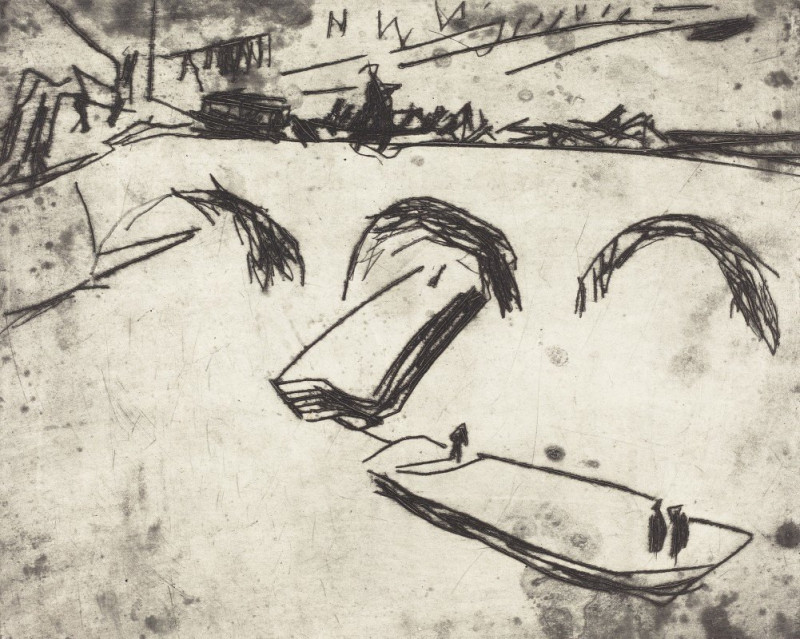
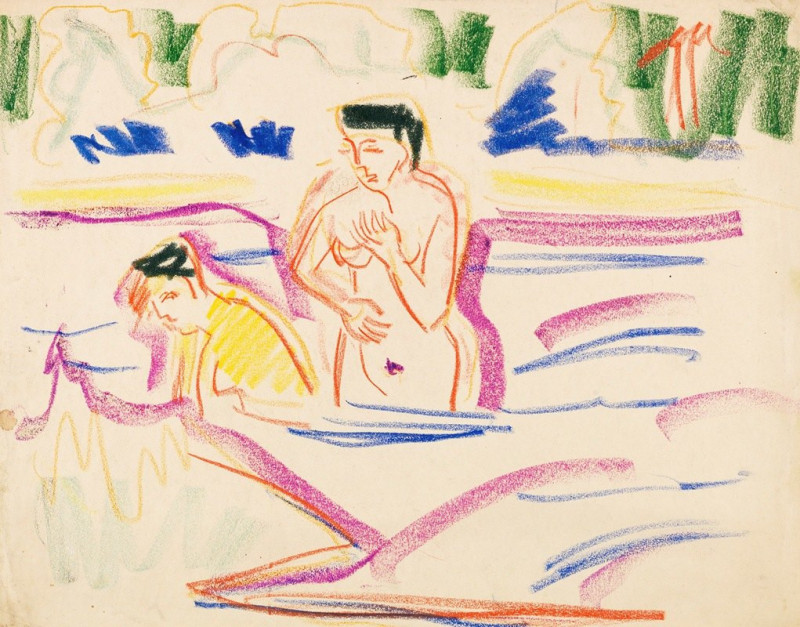
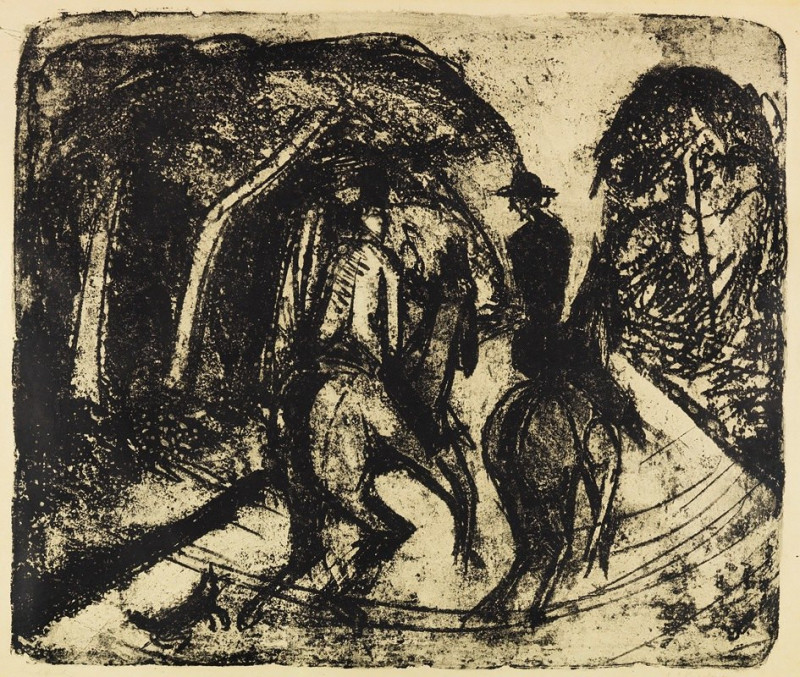
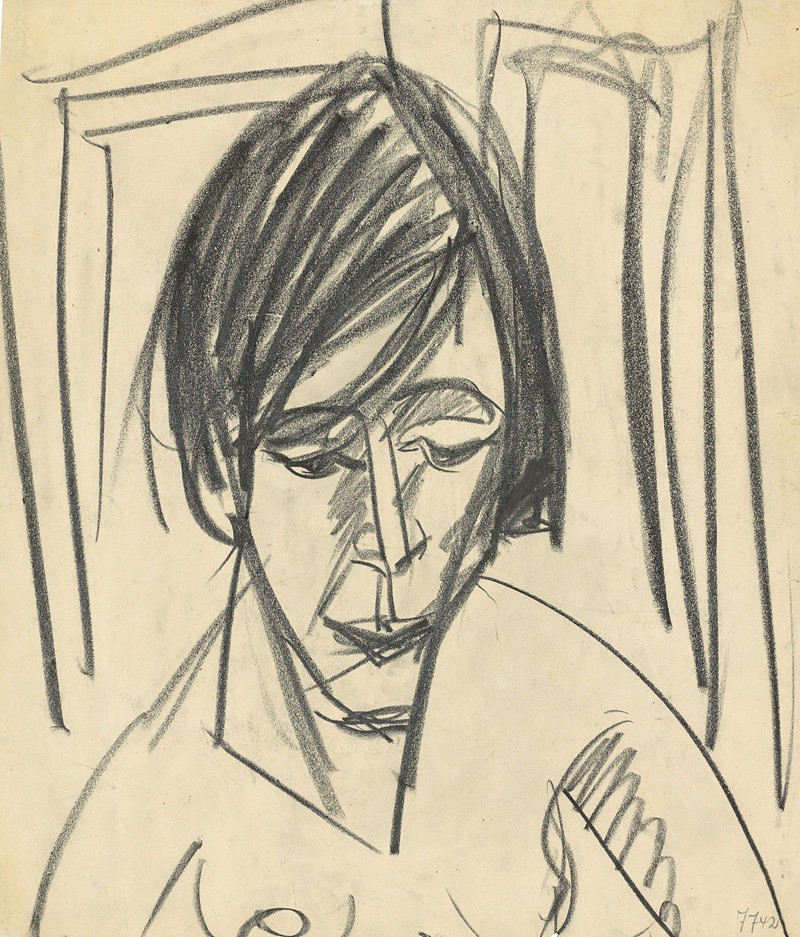
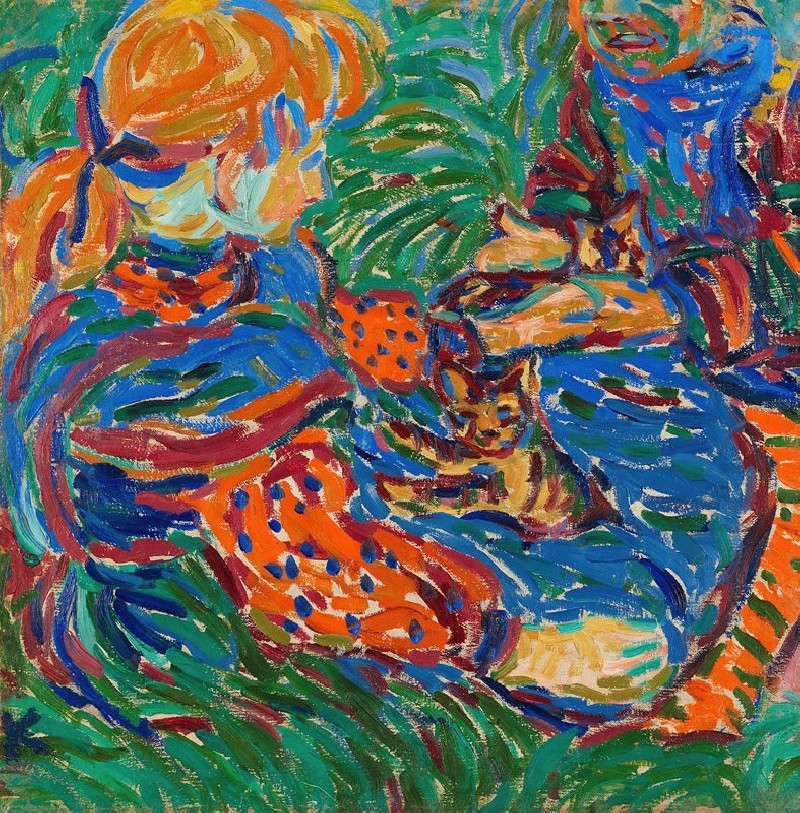
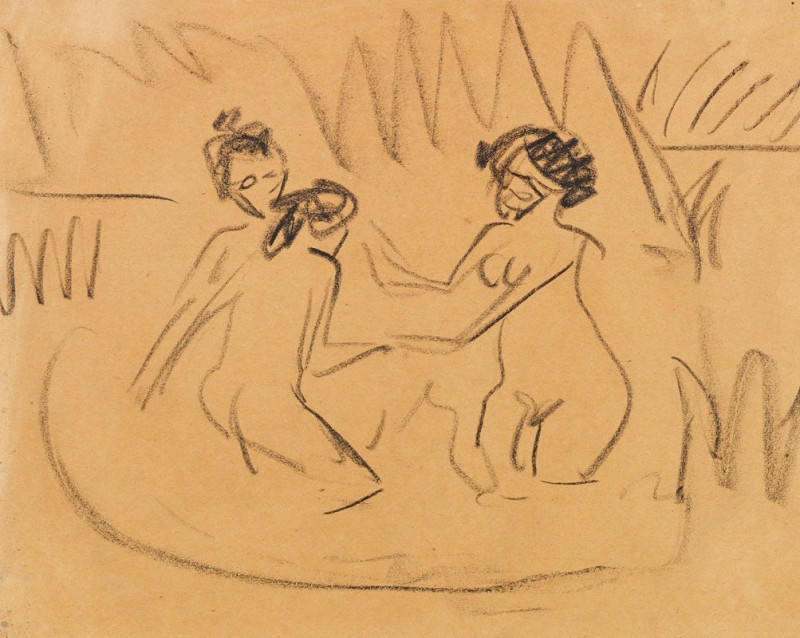
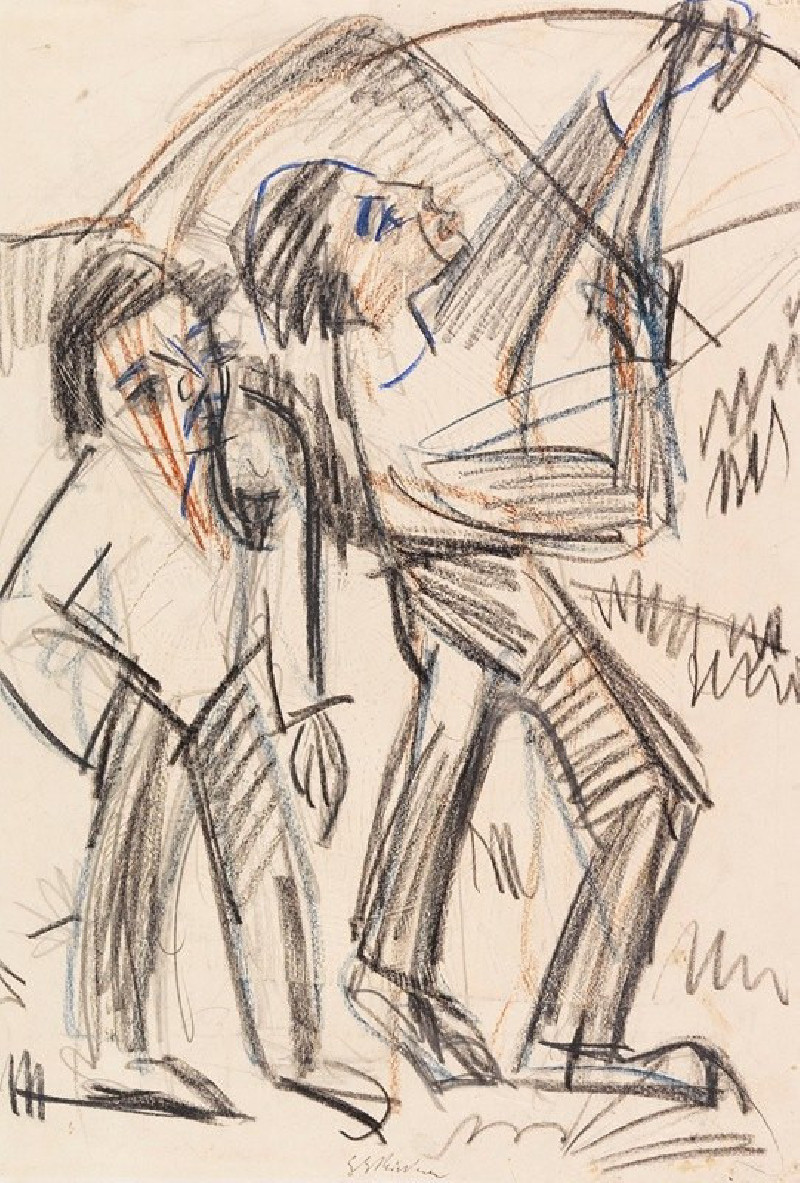
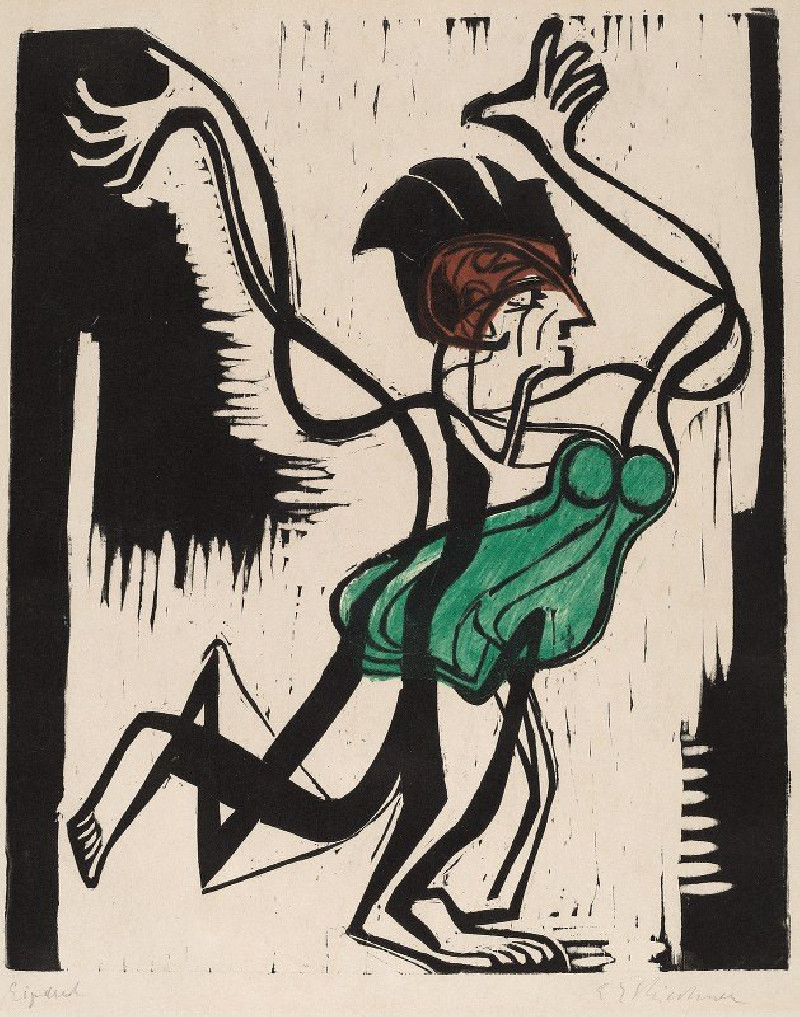
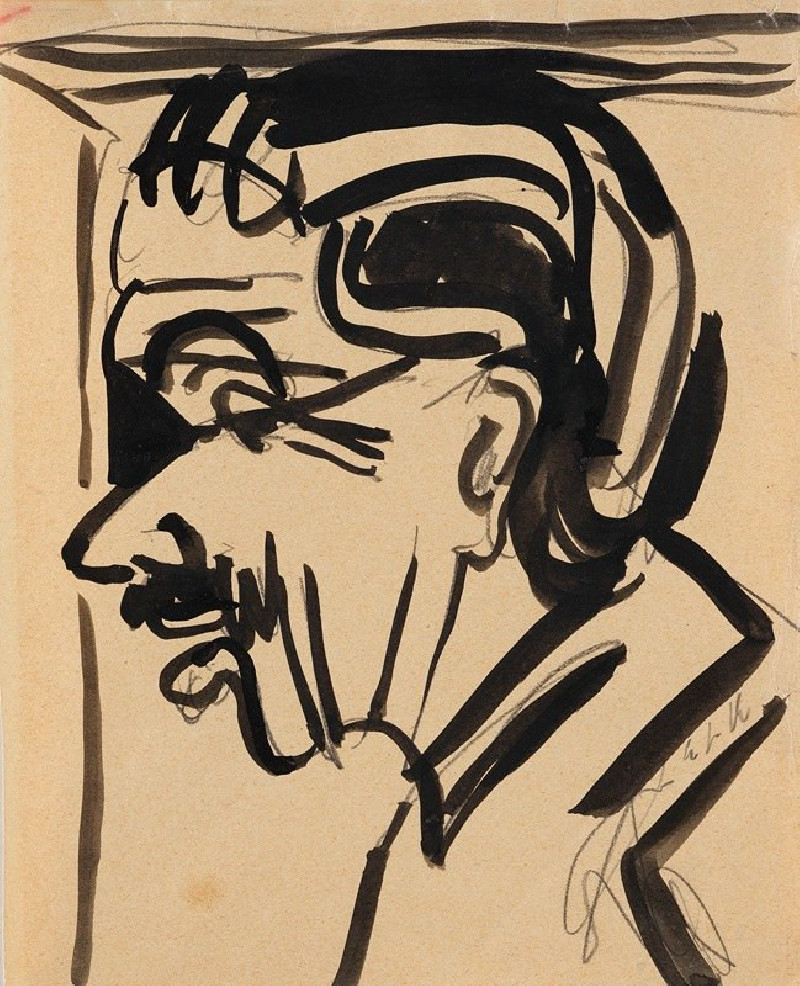
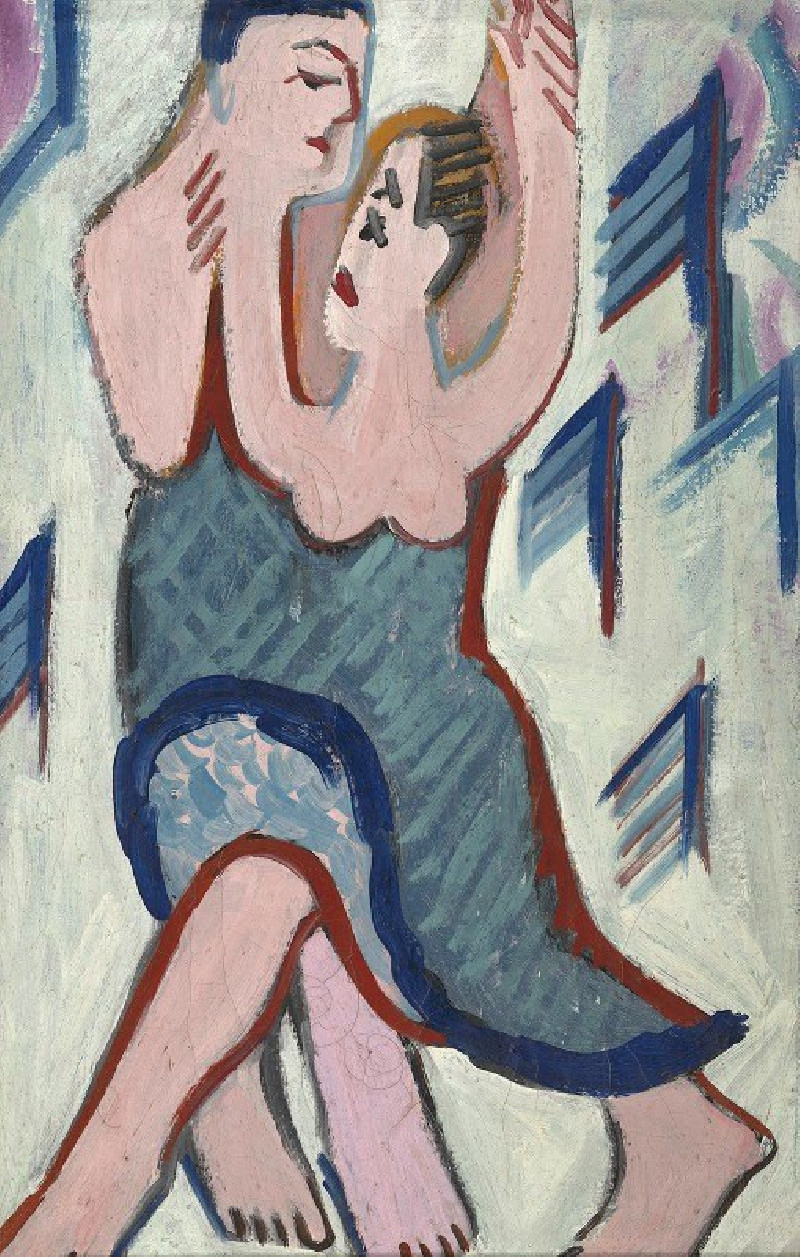
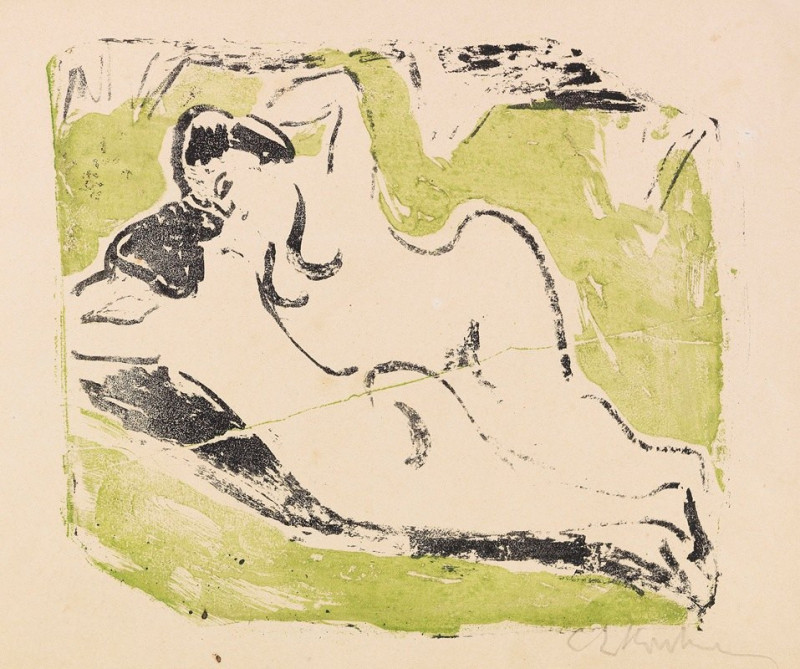
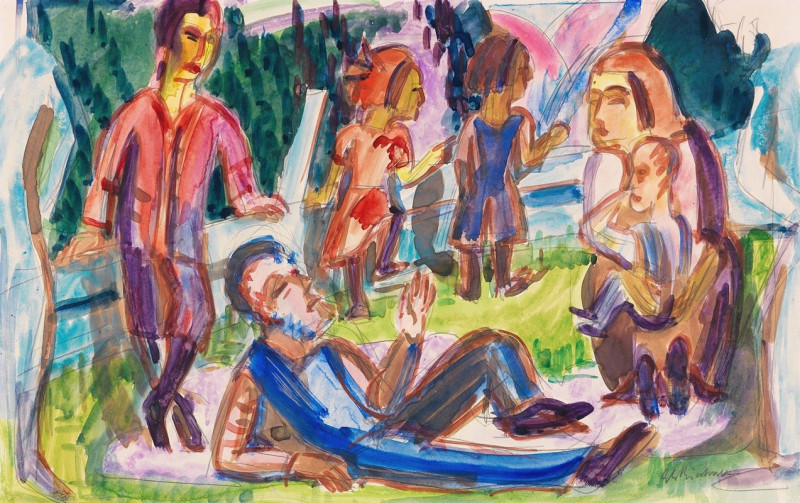
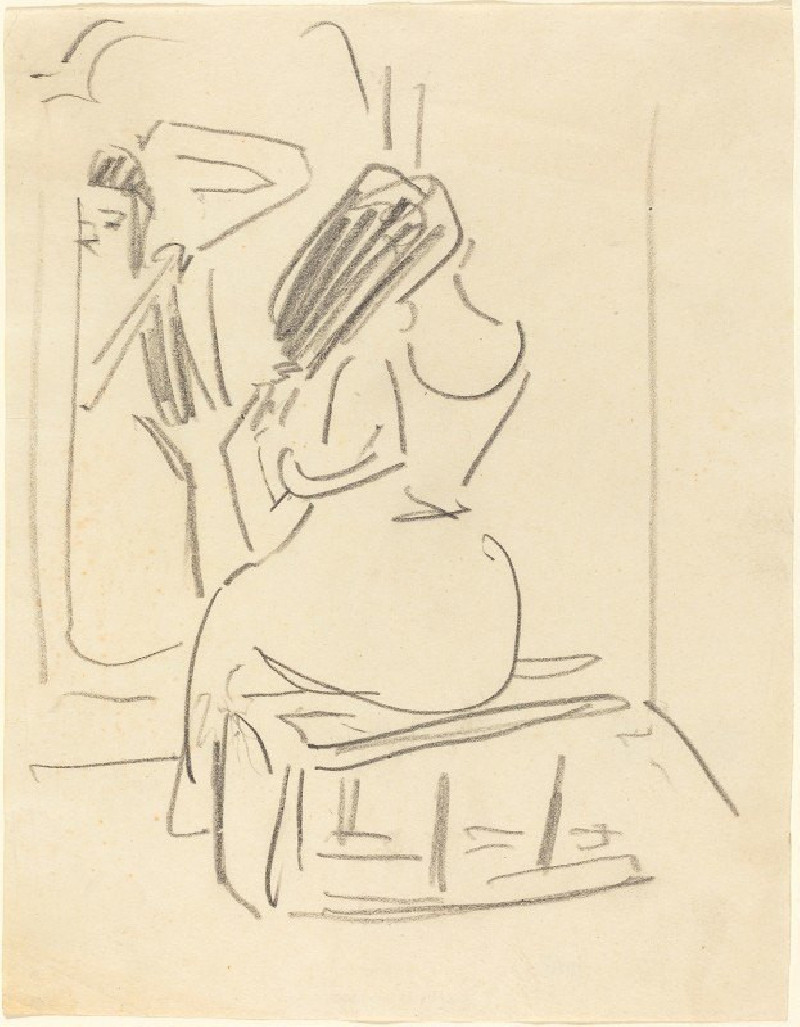
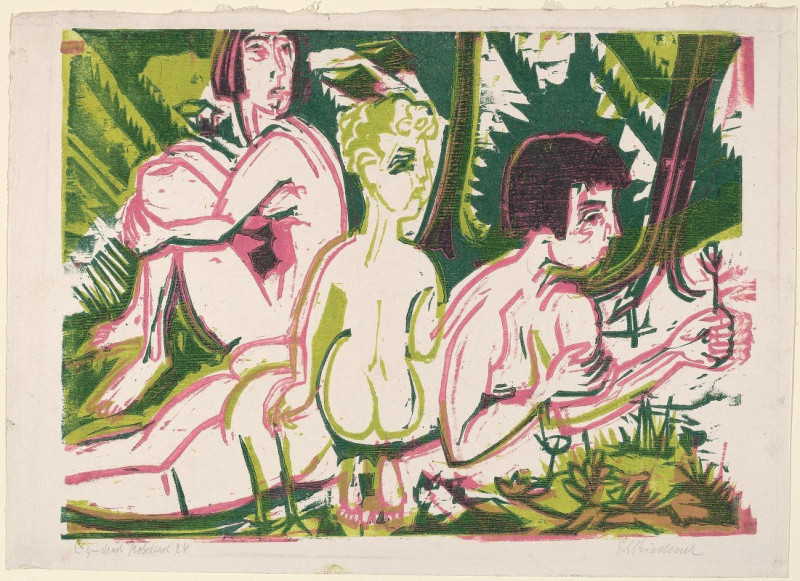
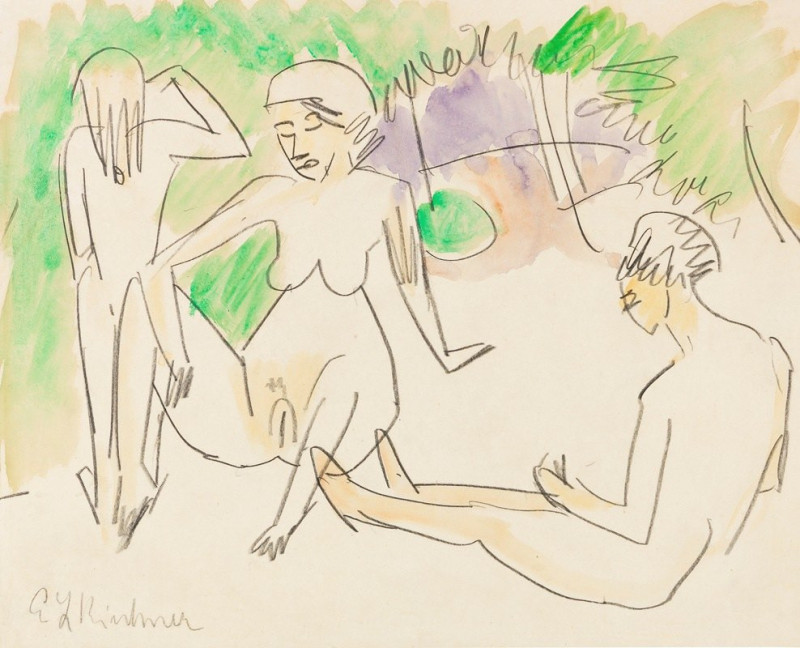
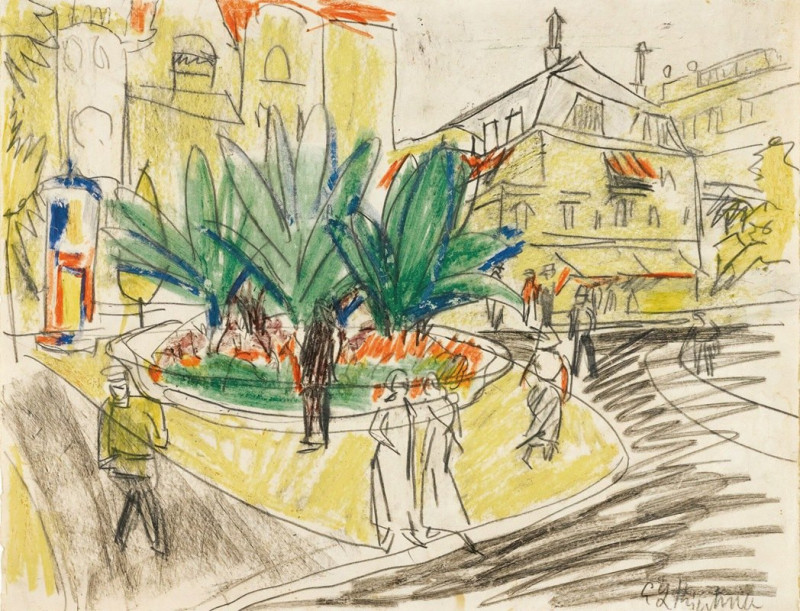
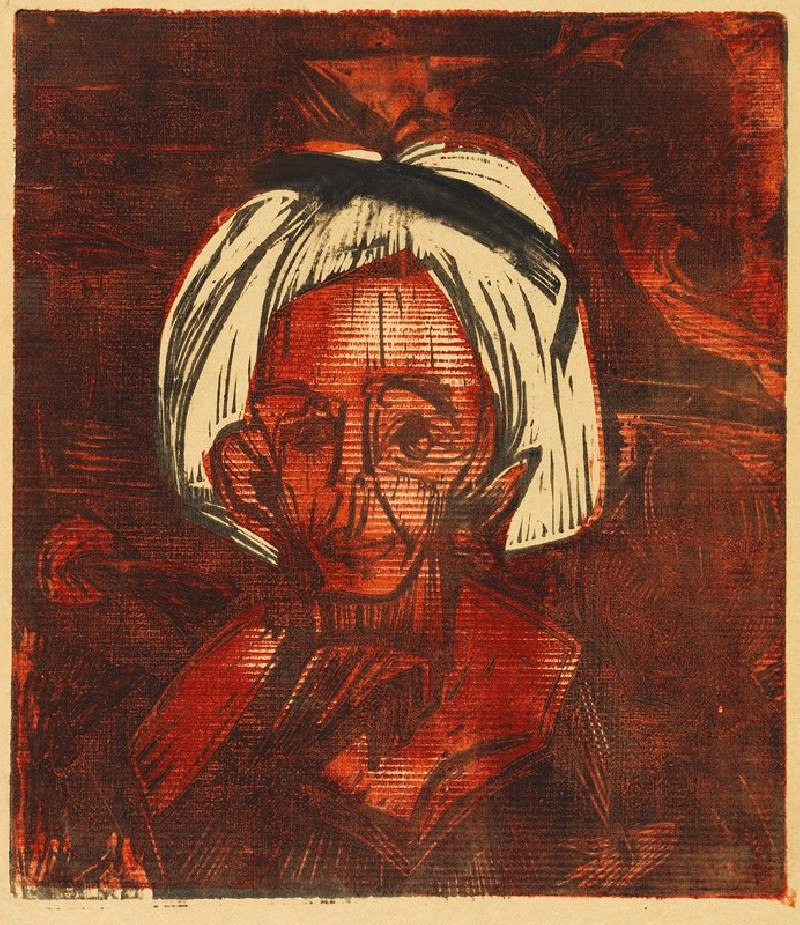
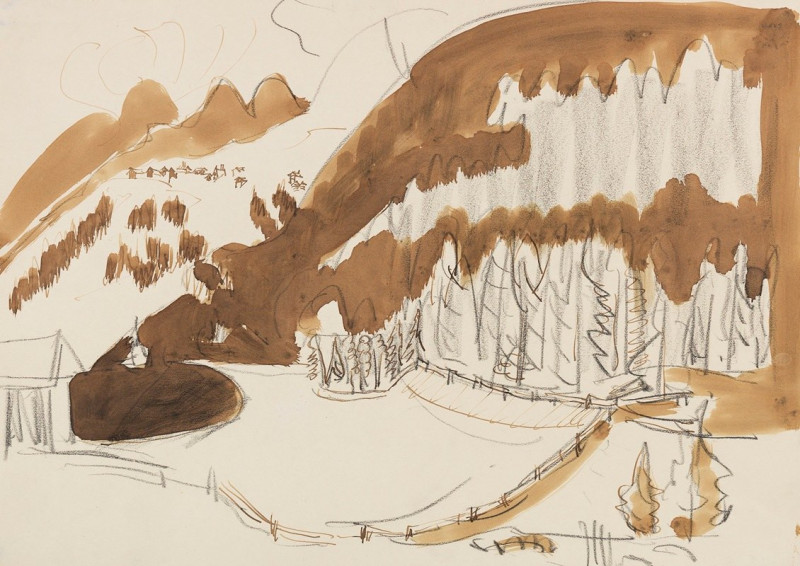
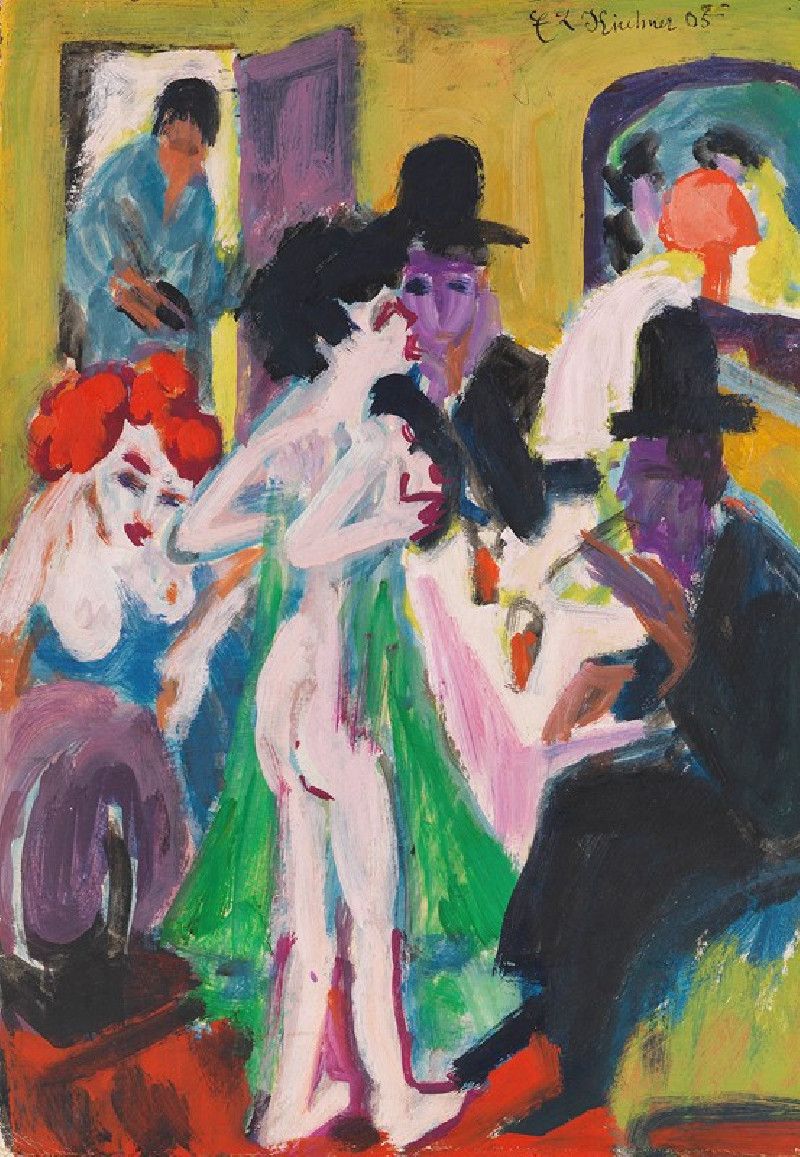
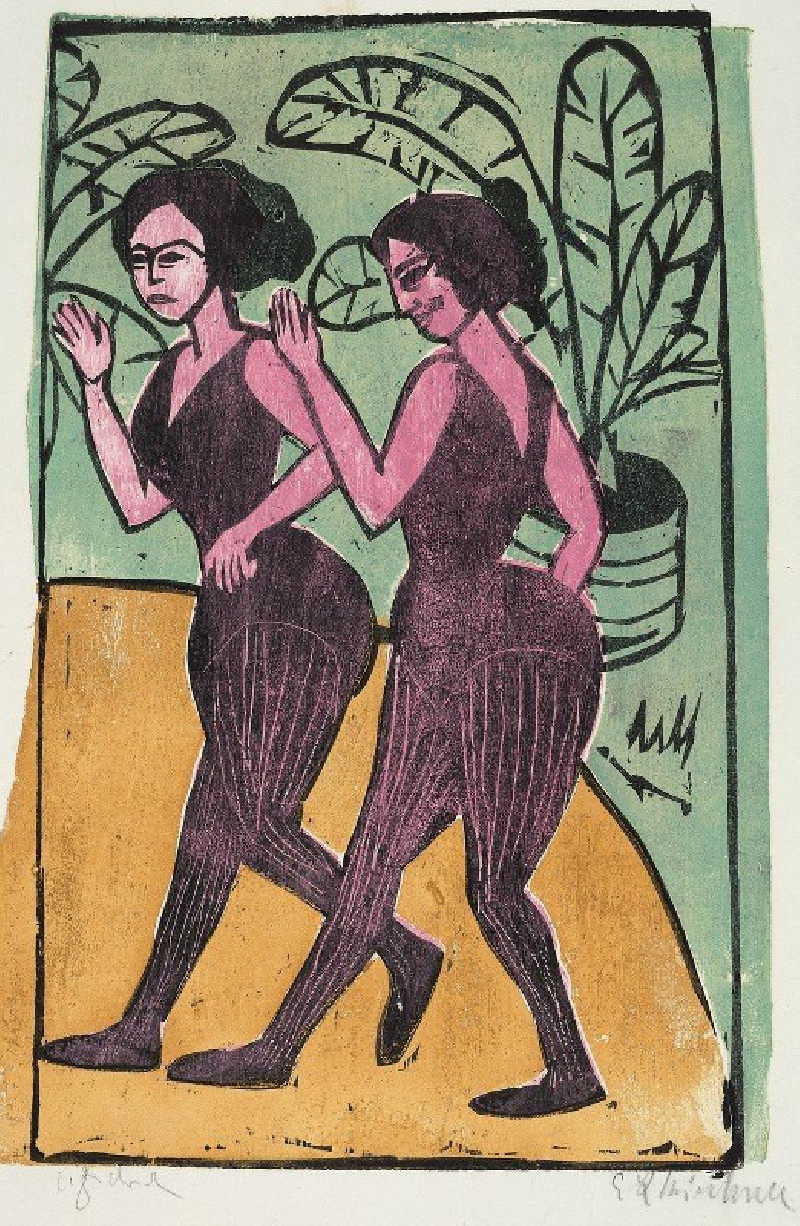
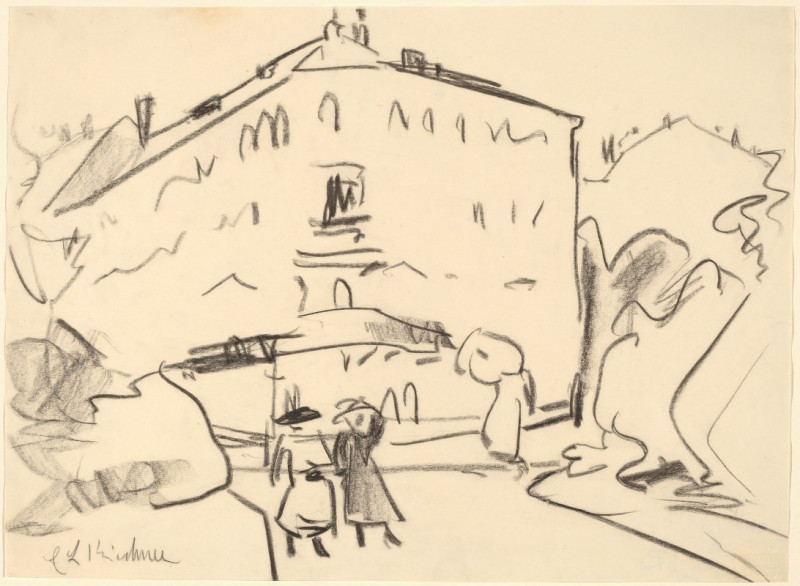
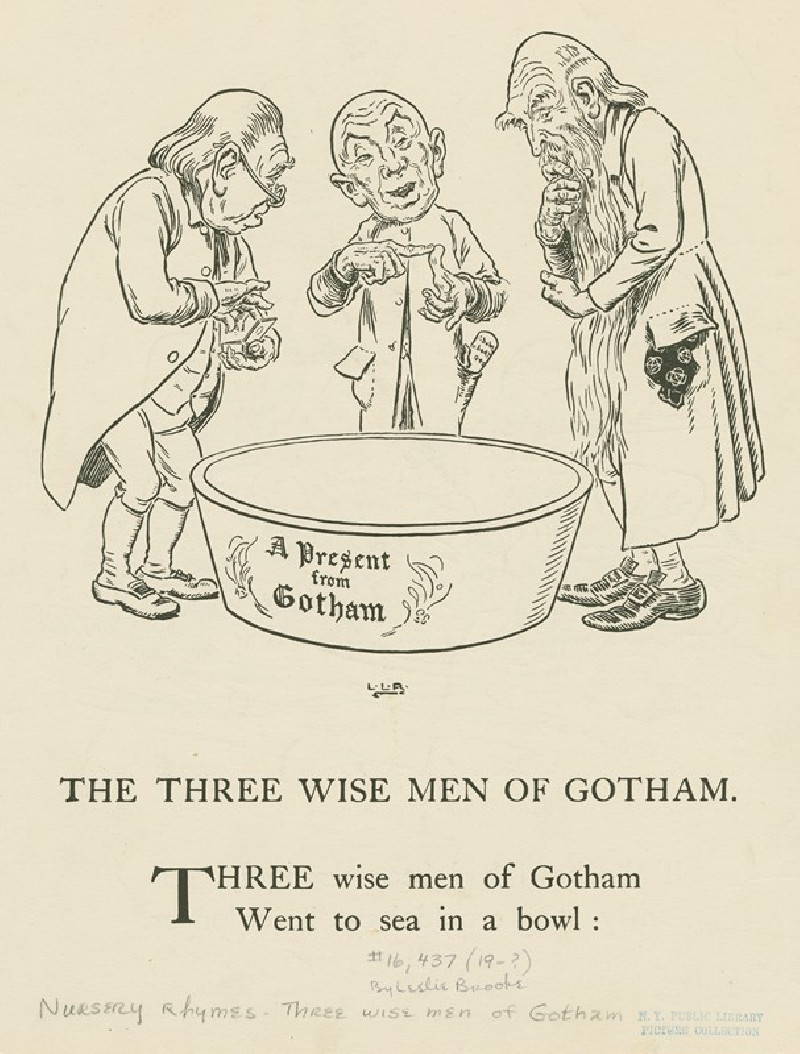
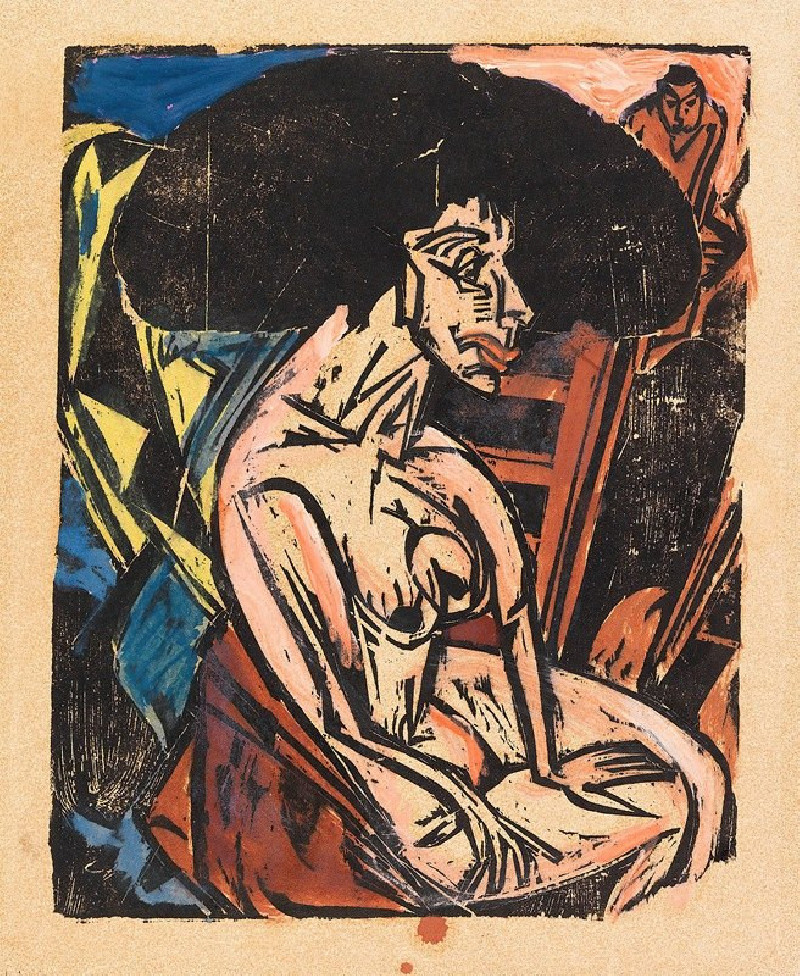
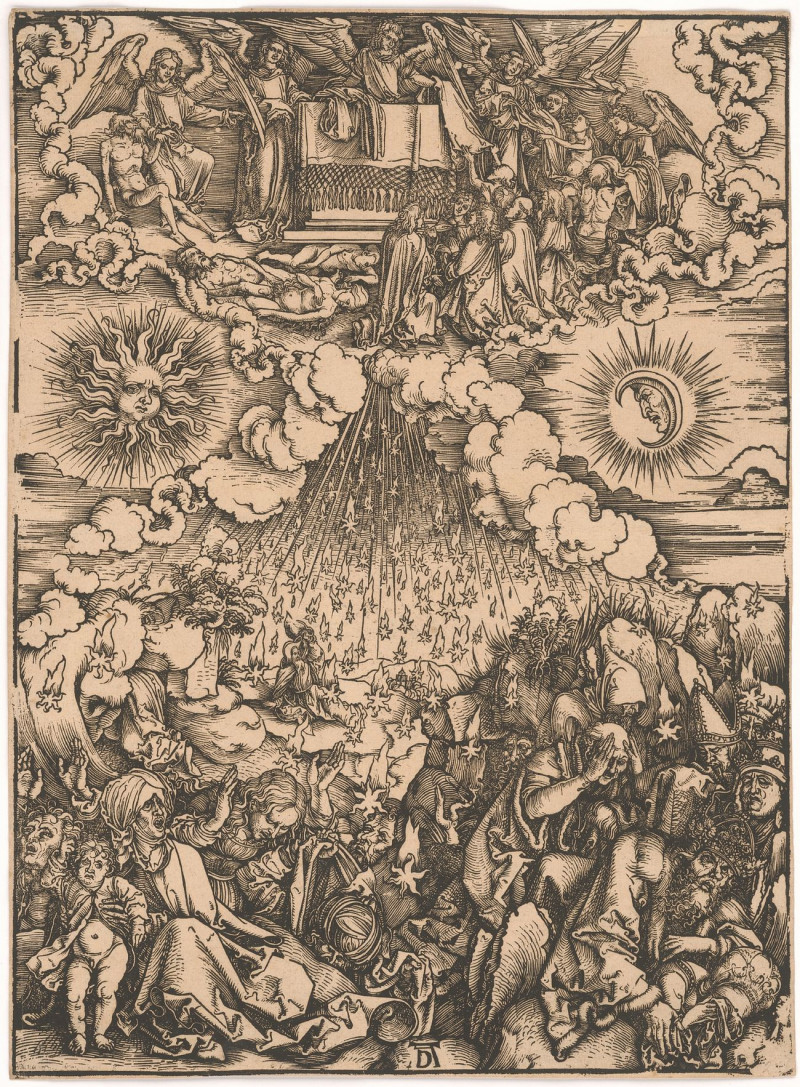


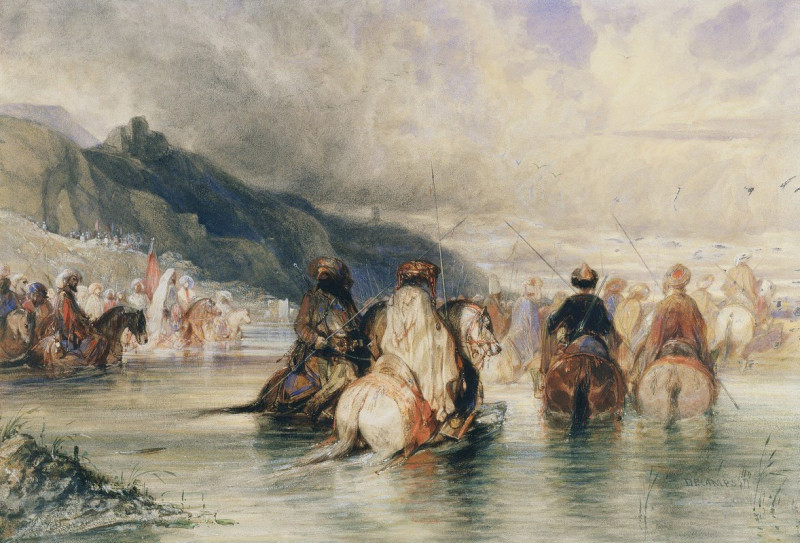
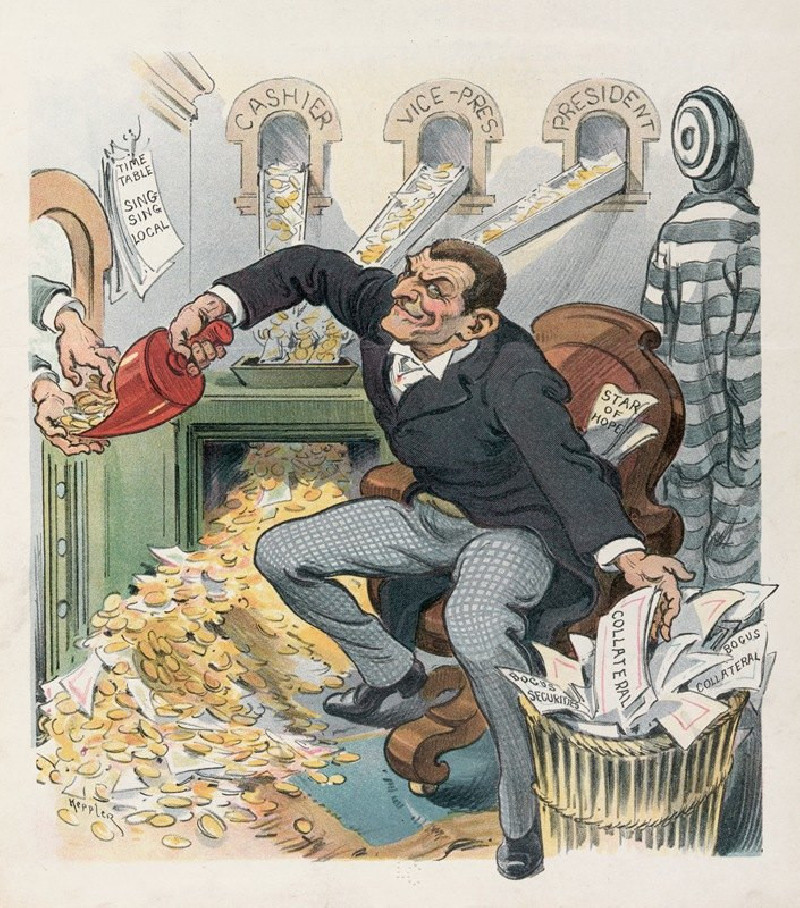

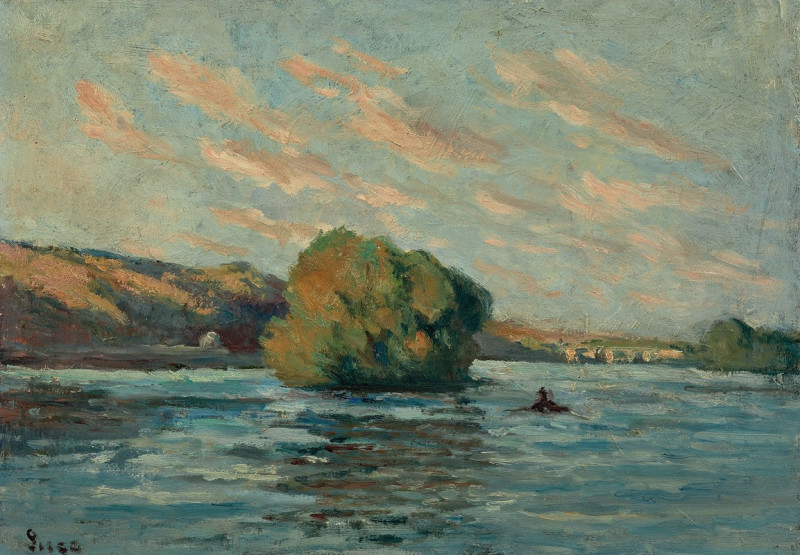
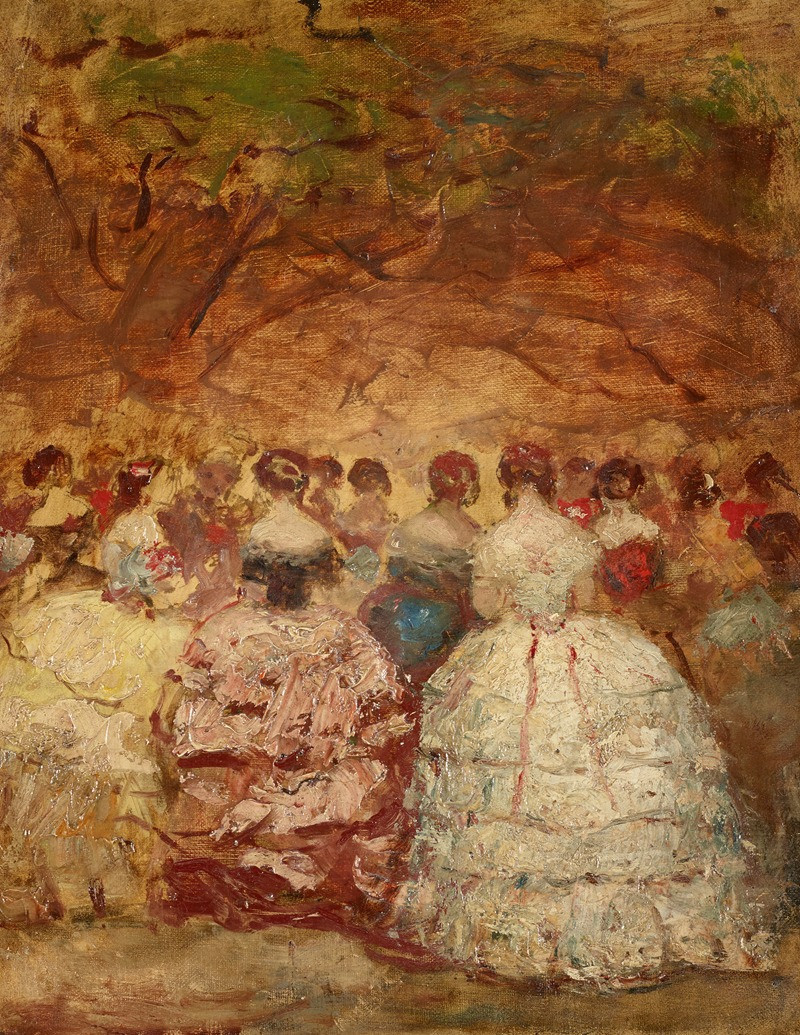
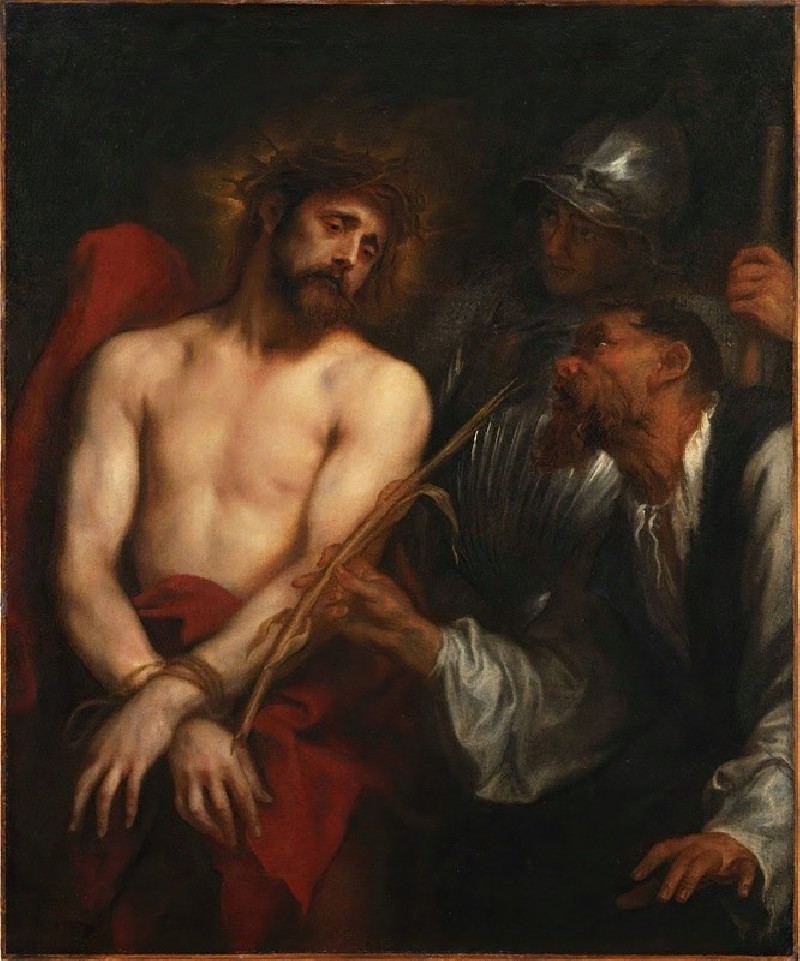
![View from under the portico of Temple of Edfou [Idfû], Upper Egypt. (1846-1849) reproduction of painting by David Roberts. AL...](https://reprodukcijos.lt/39174-large_default/reproduction-of-view-from-under-the-portico-of-temple-of-edfou-idfu-upper-egypt-1846-1849.jpg)
